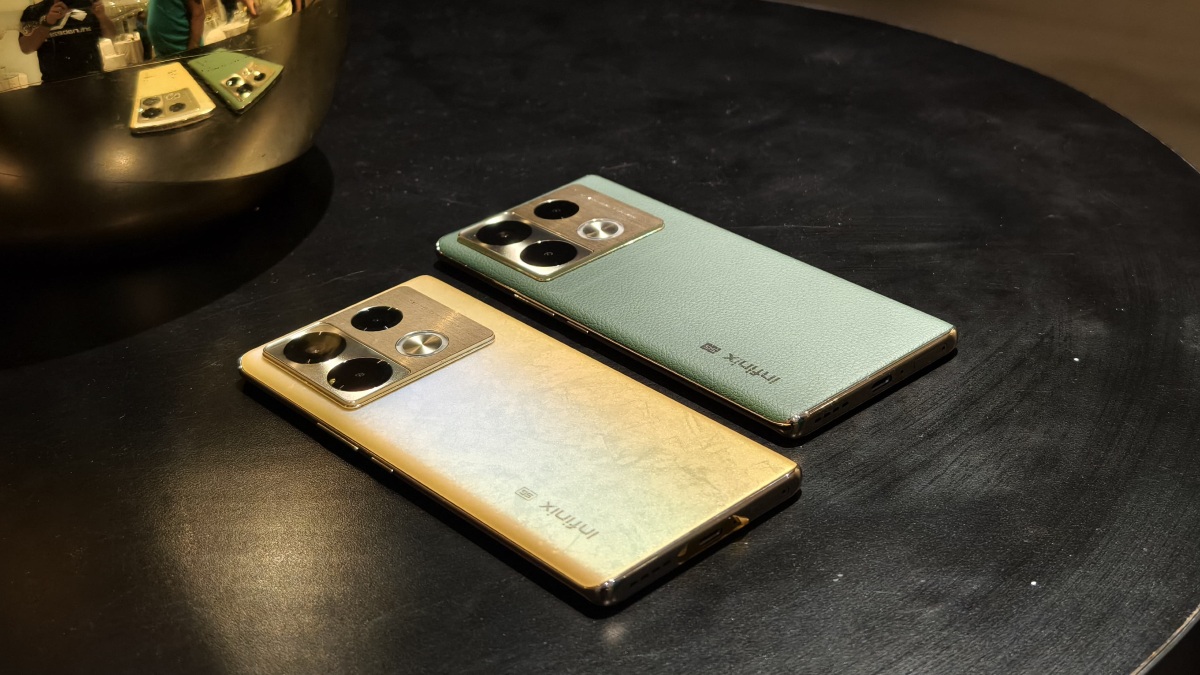Just In
- 11 hrs ago

- 19 hrs ago

- 20 hrs ago

- 1 day ago

Don't Miss
- Sports
 Who Won Yesterday's IPL Matches? KKR vs RCB & PBKS vs GT Match Scores On April 21 - Kolkata Knight Rideres and Gujarat Titans Emerge Victorious
Who Won Yesterday's IPL Matches? KKR vs RCB & PBKS vs GT Match Scores On April 21 - Kolkata Knight Rideres and Gujarat Titans Emerge Victorious - News
 Russia Warns Of Rice Import Ban From Pakistan Over Food Safety Concerns
Russia Warns Of Rice Import Ban From Pakistan Over Food Safety Concerns - Finance
 Missed Your Voter ID Card? Here Are 10 Alternate Documents You Can Use This Election Season!
Missed Your Voter ID Card? Here Are 10 Alternate Documents You Can Use This Election Season! - Movies
 Love Sex Aur Dhokha 2 Cast Salary: HOW MUCH Was Mouni Roy Paid For Her CAMEO In LSD 2? GUESS The FEE -
Love Sex Aur Dhokha 2 Cast Salary: HOW MUCH Was Mouni Roy Paid For Her CAMEO In LSD 2? GUESS The FEE - - Lifestyle
 World Earth Day 2024 Wishes, Greetings, Images, Twitter Status And Instagram Captions
World Earth Day 2024 Wishes, Greetings, Images, Twitter Status And Instagram Captions - Automobiles
 Ensuring Car Fitness Ahead Of A Road Trip: Top Tips & Tricks You Need To Know
Ensuring Car Fitness Ahead Of A Road Trip: Top Tips & Tricks You Need To Know - Education
 Assam Class 10 Result 2024 Declared: Anurag Emerged as the Top Performer With 593 Marks
Assam Class 10 Result 2024 Declared: Anurag Emerged as the Top Performer With 593 Marks - Travel
 Journey From Delhi To Ooty: Top Transport Options And Attractions
Journey From Delhi To Ooty: Top Transport Options And Attractions
This Algae-Powered Microprocessor System Can Replace Batteries
Researchers from the University of Cambridge, UK, have engineered a computer that draws power from algae that harvest energy directly from the sun. The cell is equivalent to the size of an AA battery and makes use of microscopic organisms called Synechocystis. These organisms photosynthesize sunlight to produce electrical currents.

While the current produced might not be huge, it is still enough to run a microprocessor. What’s interesting is that the system has already been running continuously for a year now.
Fulfilling The Growing Needs
As per the researchers, the system will come in handy for running small devices in remote areas.
“The growing Internet of Things needs an increasing amount of power, and we think this will have to come from systems that can generate energy, rather than simply store it like batteries,” said Christopher Howe, one of the lead researchers.
“Our photosynthetic device doesn’t run down the way a battery does because it’s continually using light as the energy source,” he added.
The Science Behind The System
The algae used for the system isn’t power hungry and doesn’t need anything apart from sunlight. Besides, the system is capable of generating power even at night as it continues the photosynthesis process even when there’s no sunlight. The electrical current produced by the algae goes directly to an aluminum electrode from where it is channelized to the processor.
To see if the system actually works, the researchers attached the system to an Arm Cortex M0+ microprocessor, a high-end processor used to power IoT devices. It was tested in semi-outdoor conditions with typical variations in sunlight and temperature. The system managed to exceed researchers’ expectations.
Time’s Up For Lithium Batteries?
“We were impressed by how consistently the system worked over a long period of time — we thought it might stop after a few weeks but it just kept going,” said Paolo Bombelli, another lead author of the study.
The researchers believe that such systems that are built for cheap and widely available materials, might replace hefty lithium-ion batteries. It can also eliminate conventional photovoltaic systems that make use of environmentally hazardous materials, especially at a time when IoT devices are expected to grow immensely. The research is published in the journal Energy & Environmental Science.
-
99,999
-
1,29,999
-
69,999
-
41,999
-
64,999
-
99,999
-
29,999
-
63,999
-
39,999
-
1,56,900
-
79,900
-
1,39,900
-
1,29,900
-
65,900
-
1,56,900
-
1,30,990
-
76,990
-
16,499
-
30,700
-
12,999
-
18,800
-
62,425
-
1,15,909
-
93,635
-
75,804
-
9,999
-
11,999
-
3,999
-
2,500
-
3,599












































